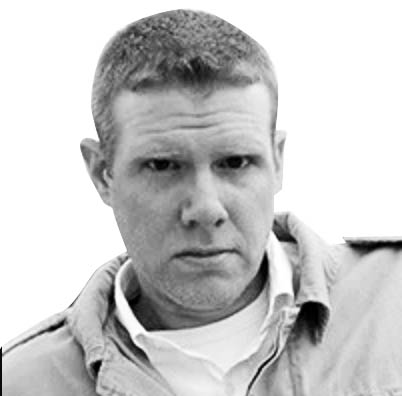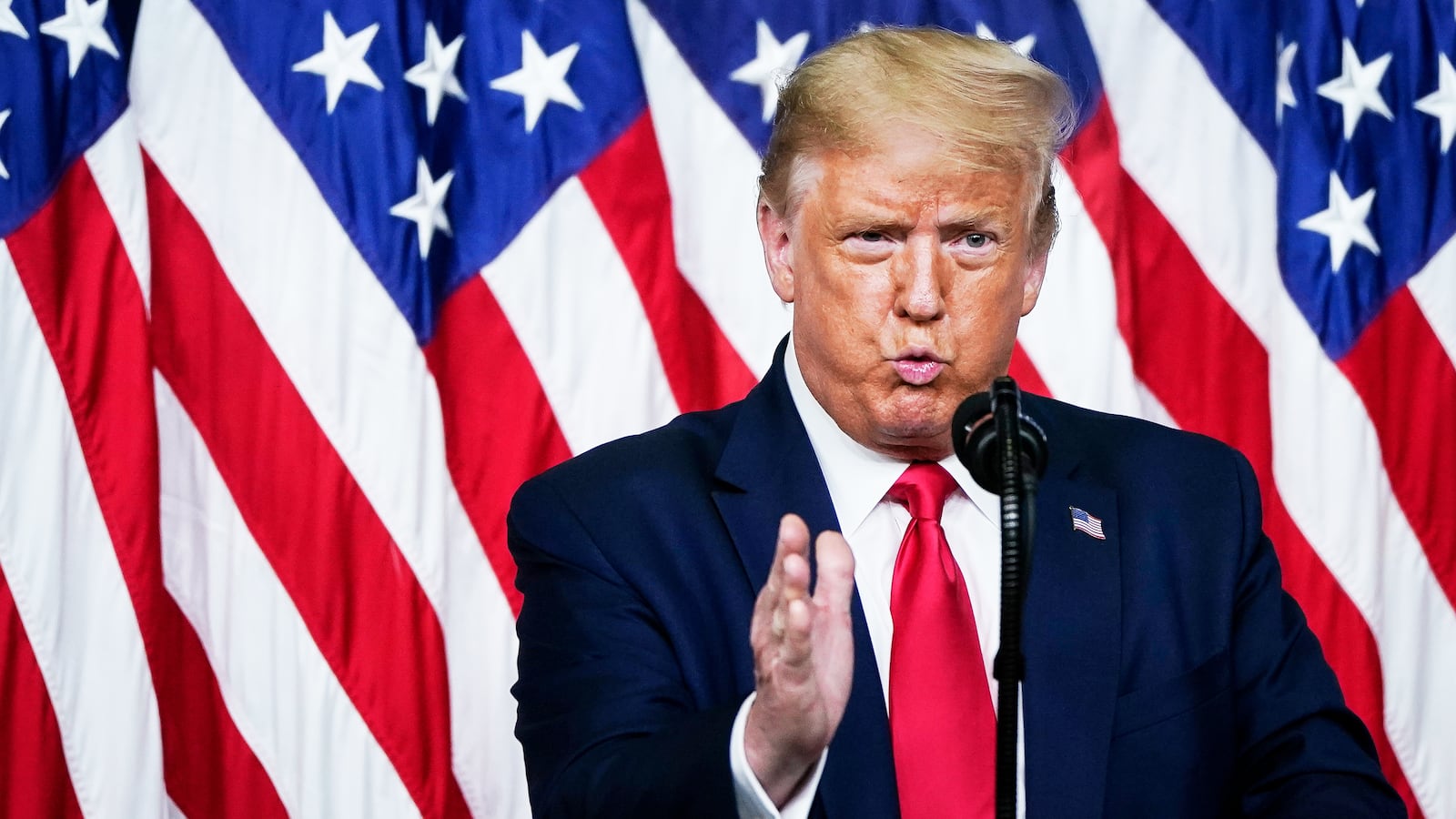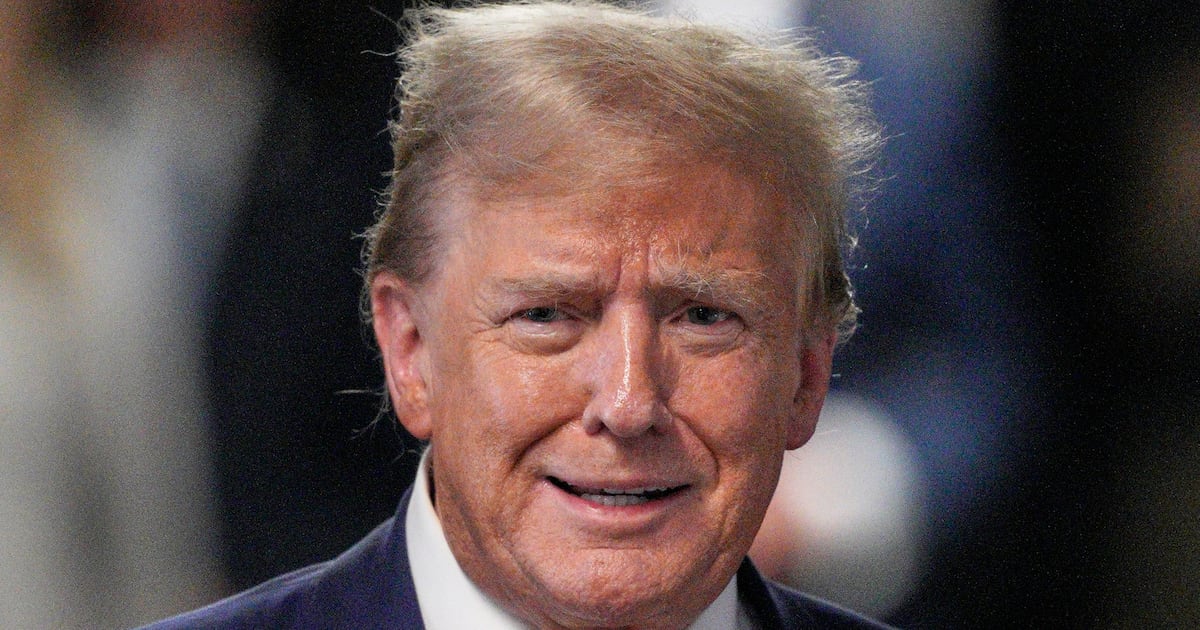CALI, Colombia—If you just read the headlines and follow the official rhetoric, you could be forgiven for thinking the Trump administration has been making great strides of late in its “war” on the criminal gang known as MS-13.
Certainly that is what Trump would have us believe. For example, a recent tweet by the president states, none too subtly: “We’ve done a great job stopping MS-13 but now we are stepping it up to a higher level[.]”
That “higher level” refers to Joint Task Force Vulcan. Vulcan was formed specifically to target transnational criminal organizations like MS-13, which has a strong presence in Central America as well as in the U.S. On July 15, Attorney General Bill Barr announced that, as a result of the Vulcan investigation, terrorism charges would be brought against an MS-13 leader—the first time in U.S. history that a member of an organized crime group will be tried as a terrorist. Another member of the gang, charged with multiple counts of murder, faces the death penalty.
Altogether, the Justice Department brought charges against 22 individuals from MS-13 cells on both the East and West Coast. The allegations include kidnapping, murder, drug trafficking and racketeering.
Barr has likened the MS-13 to a “death cult” that kills for pleasure as opposed to “commercial interests.”
"It's about the honor of being the most savage, bloodthirsty person you can be and building up a reputation as a killer," Barr said during the announcement.
Trump himself told reporters, "There's never been any move like this before” and went on to promise that every member of the gang—which numbers between 10-15,000 in the U.S.—would be brought to justice, according to the Associated Press.
"We believe the monsters [of MS-13] should be put to death," Trump said. He also later sent out a tweet that blamed the previous administration for the rise of the gang—”Don't forget: the Obama-Biden Administration allowed MS-13 to flow over the border unchecked for eight years”—and went on to claim he was “cleaning up Joe Biden's mess!”
So there you have it. Gang members are equal to “terrorists,” victory over the “monsters” is at hand, and it was all Biden and the Democrat’s fault to begin with. Who could argue with that?
“Smoke and Mirrors”
Let’s get a quick disclaimer out of the way: none of this is meant to be an apology for MS-13. The gang, also known as Mara Salvatrucha, poses an existential threat to democracy and the rule of law in the Central American nations of El Salvador, Honduras, and Guatemala. In those countries, MS-13 often partners with corrupt officials and politicians to make life hell for ordinary citizens, driving many to flee north toward the U.S border to escape repression and misery.
The gang has a much weaker presence in the U.S., but its North American members also employ ruthless methods of violence. For example, in the case for which Barr will seek the death penalty, MS-13 leader Alexi Saenz, aka “Blasty,” stands accused of seven brutal murders, including those of two high-school girls who were allegedly beaten to death with a machete and a baseball bat. Other members of the gang have been known to perform sacrificial killings as part of Satanic rituals.
In an interview with The Daily Beast, Dr. Robert J. Bunker, a national security analyst at the University of Southern California, called MS-13 “hyper-violent” and “a gang with extremely brutal tendencies at its core.”
But Bunker also referred to Trump’s highly publicized offensive against a fierce but relatively small Latino gang as “smoke and mirrors” to mask an ulterior motive.
“Trump is indeed playing to his base and demonizing all Latinos to curry favor with his political constituency—especially those segments which are drawn from the white nationalist movement and other elements of the extreme right,” Bunker said.
Former DEA Chief of International Operations Mike Vigil also told The Daily Beast that Trump’s scapegoating of MS-13 was more about political grandstanding than practical law enforcement.
“MS-13 is not the largest or most violent gang in America, even though the current administration paints them that way with a broad brush of pure propaganda,” said Vigil.
There are more than 1.5 million gang members in the U.S., including groups like the Aryan Brotherhood, which dwarfs the Mara Salvatrucha, according to Vigil, but has never been singled out by Trump or his Justice Department for a special task force.
“The MS-13 makes up a very insignificant number [of gang members in the U.S.] and they operate in very independent and competing factions. There is no central command,” said Vigil, who went on to call the gang “nothing more than a tool of convenience” for the president.
“Trump has focused on the MS-13 to spin his convoluted and racist immigration policies, using ICE as his gestapo to put asylum seekers [at the southern border] in cages and separate them from their children,” the DEA’s former chief of international operations said. “It is also a convenient excuse to build a border wall that would be a complete waste of money.”
Of Kingpins and Terrorists
The Daily Beast has previously covered the controversial questions involved in labeling cartels or criminal groups as “terrorists” under U.S. law, as Trump threatened to do in late 2019.
The biggest problem stems from the fact that “terrorists are politically motivated and criminals are economically motivated,” as USC’s Bunker pointed out. That means the strategies and tactics needed to combat these respective breeds of violent non-state actors also need to be unique and specialized.
In this particular case, the Trump administration has found a convenient loophole. While MS-13 is not yet designated as an official terror group in the U.S., the gang is so designated in El Salvador. That’s where Armando Melgar—a Salvatrucha leader who organized gang hits on America’s East Coast and received extortion remittances from U.S.-based cells—is currently in prison.
In Central American nations like El Salvador, gangs like MS-13 have become so powerful and operate with such widespread impunity, often in collusion with local law enforcement, that they actually threaten state sovereignty. In that way they blur the line between criminal organization and insurgency, according to Bunker, who said “new approaches must be explored” for dealing with these “gangster warlords.”
Yet until a new strategy comes along, the traditional U.S. anti-terrorist playbook remains a poor fit for battling organized crime, said 31-year DEA veteran Vigil. If Barr’s prosecution of Melgar does indeed set a new precedent, in which the terrorist designations for crime groups becomes widespread, “it could be used to politically justify military strikes in foreign countries as it has in Syria, Sudan, and Pakistan. If such strikes occurred in Central America or Mexico it would destabilize the entire region and turn allies against us and undermine bilateral [crime-fighting] efforts,” Vigil said.
Another anti-terror tactic that has proven itself a poor fit for dealing with crime groups is the so-called Kingpin Strategy, which involves targeting high-ranking insurgency leaders for capture or assassination. Demoralized jihadis may back down when their divinely inspired leaders are slain or arrested. Criminal cells, which are motivated by greed instead of dogma, merely fracture into competing factions when the head of the outfit is eliminated.
“The Kingpin Strategy has been a dismal failure and has only caused gangs and cartels to fragment, thereby creating more violence as they fight for power and territory,” Vigil said. “This would also undoubtedly occur with MS-13.”
And yet that’s just the approach Trump’s “War on Gangs” has taken. Task Force Vulcan arrested fewer than two dozen cell leaders in the course of a year—targeting only a tiny fraction of MS-13’s total numbers—while the administration has done nothing to subdue the gang’s rank and file. Nor to combat the conditions of grinding poverty and lack of alternatives in poor communities that lead young men to join gangs in the first place.
At the press conference to announce the most recent indictments, Barr indicated Vulcan was just getting started, saying, “there's more coming as we target the leadership of MS-13.” In other words, the administration’s plan going forward is to double down on the same failed Kingpin policy.
“The U.S.-led military response to gangs, along with categorizing them as ‘terrorists’ cannot, in any way, resolve the underlying issues,” said Grahame Russell, co-director of the U.S.-based NGO Rights Action, which works in gang-infested areas of Honduras. “Rather [this response] will worsen things—even if they end up with a few show trials and convictions of ‘gang terrorists’.”
“The U.S. Created the MS-13 Monster”
So what of Trump’s other claims—that Obama and Biden are to blame for the domestic rise of MS-13? Or that a border wall and a martial posture on the frontier are needed to keep new recruits out?
Let’s start with the former. The uncomfortable truth is that the “death cult” Barr and Trump tout as the greatest threat to Americans’ safety was actually born in the USA—long before Obama and Biden took office. “MS-13 originated in Los Angeles in the early 1980s,” Bunker explained, and spread to Central America during the 1990s, as illegal foreign nationals were deported there. “Thus, essentially, the U.S. helped to create the ‘MS-13 monster’ that now exists.”
“Blaming the Obama-Biden administration for MS-13’s rise is simply political mudslinging. It is politically expedient for President Trump because he seeks to discredit Joe Biden in the upcoming election [and] push his border wall program,” said Bunker.
And what of the second claim, that a barricaded border and draconian immigration policies are needed to stop MS-13 reinforcements from slipping into the U.S.? Critics say a much better, more proactive strategy would aim at stopping gang proliferation in Central America.
In Honduras, for example, Trump’s support for notoriously corrupt President Juan Orlando Hernandez—despite his well-publicized ties to gangs and drug cartels—has combined with endemic poverty to foster a vicious circle in which criminals and officials work hand in hand.
“Not only do the regimes in power in countries [like Honduras] create the underlying conditions that foster and nurture gang life, but the regimes [also] work strategically with certain gangs for their own criminal interests,” said Russell of Rights Action.
Violent gangs like MS-13 contribute to illegal immigration, but the crime groups themselves are also “symptoms of the underlying injustices and inequalities in these profoundly corrupt, military-backed, anti-democratic regimes that are fully supported and backed by the U.S,” Russell said.
DEA veteran Vigil agreed that there are more expedient ways to push back against entrenched gangs than Trump’s token arrests and wall-building:
“A much better and more comprehensive strategy to combat MS-13 would be to [address] the structural problems” in Central America and help to “develop the criminal justice systems in those countries,” he said.
Bunker sounded a similar note, citing the need for “economic development, governmental restructuring, and political enfranchisement of the masses [to] make any headway against the gangs and organized crime in that part of the world.”
However, such an approach to combating gang violence both at home and abroad might be unlikely so long as Trump remains in office.
“To effectively counter the threat MS-13 represents, we need to decouple our response from political agendas,” Bunker said. “This may now be impossible to do based on the conflation of Latin American immigration with MS-13, and its vilification as a threat to ‘white America’.”







